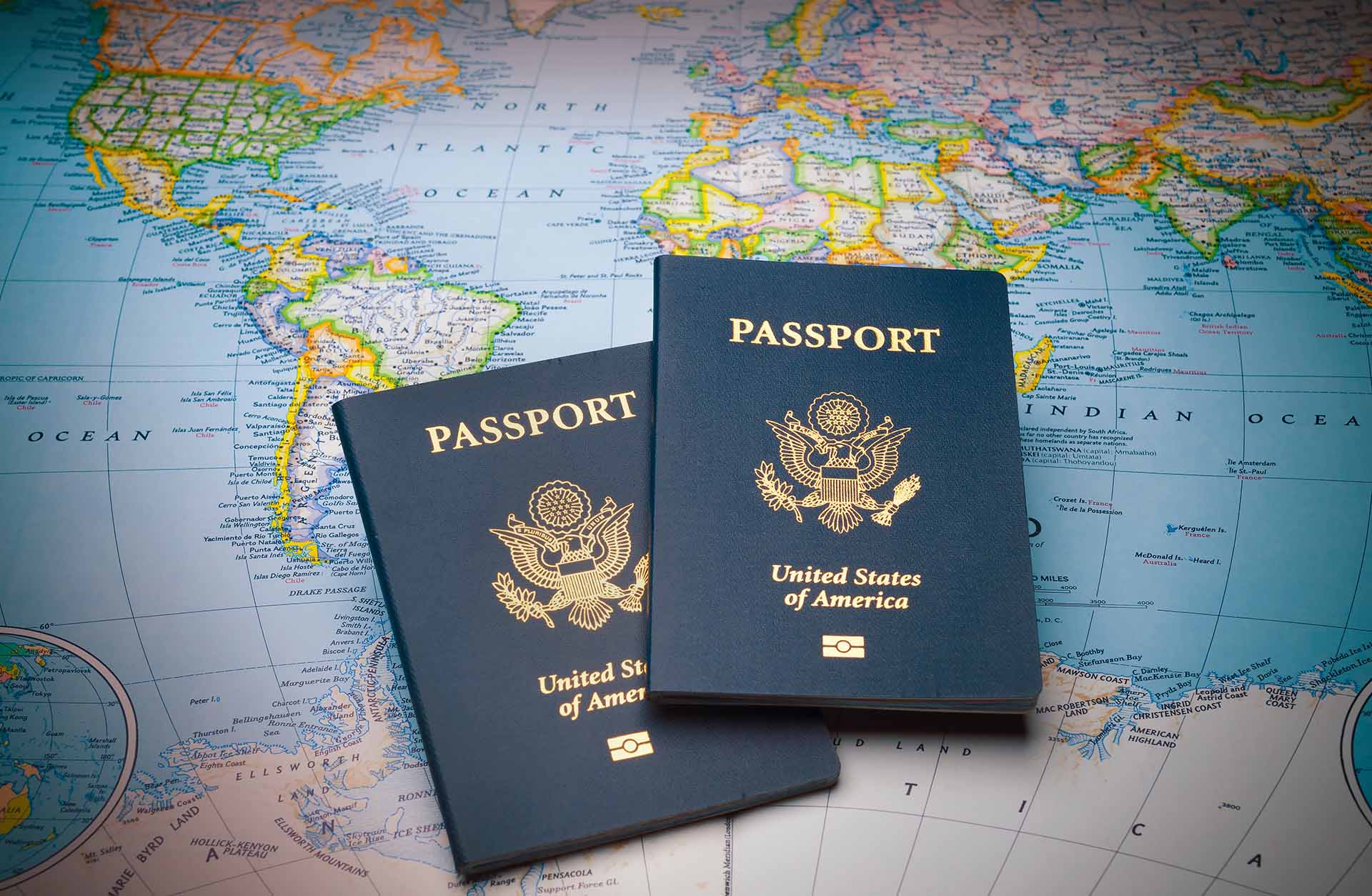Situated in the heart of the old continent, Deutschland is one of the most desirable places for expats worldwide. Has moving to Germany been your dream? If you decided to relocate, know that you’ll be settled in the land of castles, palaces, unique natural landscape, and of course, some fantastic beer and bratwurst. This country has the strongest economy in Europe, offers plenty of job opportunities, and has high-quality healthcare. Find out everything you need to know before you start planning your international move.

Deutschland is the seventh-largest country in Europe and is considered to be one of the friendliest countries in the world. Berlin, its capital and the most populous city, is also known as one of the world’s best international cities. Would you rather stay away from the capital? No problem! Frankfurt, Cologne, Stuttgart, Munich, and Düsseldorf offer great things as well. The official language is German. Yet, you don’t have to stress yourself if you don’t speak it right now. Around 120,000 Americans are currently living here. Thus finding people who speak English and adjusting to a new country will be pretty easy. This country is a European Union member, so the official currency is Euro (€). Therefore, you’ll need to convert your US Dollar savings. Keep reading and see why moving overseas doesn’t have to be stressful. You just need to do all the paperwork in advance and moving to Germany from the US will be a piece of cake.
1. How to Move to Germany – Visa Requirements and Residence Permit for International Moving
A great country such as this one will definitely leave you with only one question — can I just move to Germany? You’ll have to obtain documents needed to travel abroad. You can start by applying for the Schengen Visa, which will allow you to stay here or travel to other Schengen Zone countries for 90 days. Since you are planning to move, during these 90 days, you should start the process of acquiring your residence permit. Remember to start at least three months in advance since the whole process takes time. The most common reason why people apply for one:
- If they have found work
- If they are going to study
- If they are part of a research group at the university
- If they are moving to another country for love and planning to get married.
Depending on your reasons to move, you’ll apply for either Standard Residence or Settlement Permit.
If You Have Found a Job, You’ll Apply for Standard Residence Permit
Living in Germany with this type of permit will be limited. If you attend an integration course and successfully pass the exam, you can extend or transfer it to a settlement permit. Standard Residence Permit is issued for work, a course attending, family reunion, or to German expats who want to return to their homeland.
What You Need to Prove to Get German Settlement Permit
If you get this type of permit, you’ll be granted a permanent residence, which is something similar to the American Green Card. In order to be eligible for a settlement permit, you’ll have to meet these requirements:
- Having a residence permit for at least five years
- Proving that you have more than basic language proficiency
- Proving that you are financially secure
- Enrolling an integration course and passing the exam.
That’s your answer on how to move to Germany with the proper documentation. You can apply for your visa or a permit at any German consulate in the US. Remember that, if you are moving with pets, you’ll need to read in detail about rules and regulations. You basically need to check if your pet is not on the list of prohibited breeds, and get them to vet prior to the move. The vet should provide a pet passport, health certificate, and microchip your animal friend.
Can I Move to Germany Without a Job? What to Know Before Hiring an International Moving Company
If you already have a job, you should remember to make a list of relocation questions to ask your employer. However, if you are moving to Germany from the USA without work, searching for one should be on top of your moving abroad checklist. You can definitely relocate without it, but after a while, you’ll spend your savings. If you are planning to settle for a longer period, you should start a job hunt. Fortunately, there are plenty of jobs for Americans in Europe, especially in this country that has the largest and strongest economy in Europe.
2. Have COVID-19 Restrictions in Mind if You’re an American Moving to Germany From the US
Relocating and living overseas at the moment will be a bit difficult. The COVID-19 pandemic imposed certain restrictions and rules for people flying over from a large number of countries. As an American moving to Germany, you might be obliged to isolate yourself for 14 days or get proof of negative test results. Since these rules are constantly changing, be sure to keep up with the latest information.

3. Know the Cost of Living in Germany vs. the USA Before Moving Overseas
Since you are moving to Germany from the US, you’ll be happy to find out that the cost of living will be a huge relief. We will use an example of Germany’s capital, and New York, the biggest US city. According to numbeo.com, groceries are 75 percent more expensive in NY than in Berlin. If you prefer dining out, you’ll be thrilled to find out that your check at the restaurant will be 87 percent lower in Berlin than in NYC. According to government data, the average income in Deutschland per month is around $4000, which is way higher than in the USA.
Renting or Owning a Home After Moving Internationally?
You’ll also save plenty of money on rent! The median rent for a one-bedroom apartment in the city center will cost you around $750, while essential utilities with the internet service will be approximately $250. On the other hand, if you want to plant your roots and purchase an apartment, the price per square foot will be around $480.
Are you planning to live in bigger cities like Berlin or Munich? A price for a one-bedroom apartment in the center in Berlin will cost you about $910. If you are moving across the world and coming from cities such as NY or LA, you will save thousands.

4. When Moving Abroad to This Country, Know That Health Insurance Is Obligatory
If you are moving internationally to Deutschland, you are required to obtain health insurance. You can either get public health insurance (Gesetzliche Krankenkasse) or private (Krankenversicherung). Which one you choose will entirely depend on you. If you already found a job, your employer will take care of everything. If you are unemployed, you can apply for your health insurance card at AOK. Germany’s healthcare system is excellent. It is ranked way higher than the one in the US.

5. A Wide Range of Excellent International Schools
Deutschland is one of the best places to live abroad with family. Apart from the abundance of family attractions and kid-friendly activities, you’ll find great international school options for your kids. These schools offer small class sizes, great facilities, and high educational standards. While most of them are run privately, there are a couple of public ones. Some of the top-ranked are Munich International School, Berlin Brandenburg International School, and the International School of Stuttgart.

6. Public Transportation Is More Than Efficient
Living in Europe as an American means enjoying the benefits of a top-quality transportation system. Deutschland is no exception. With many public transportation options, like buses, trams, the S-Bahn (overground), and U-Bahn (subway), you’ll be able to navigate easily wherever you decide to settle. Berlin’s U-Bahn daily carries around 1.5 million people to 173 stations across 94 miles. All tracks are linked up, making it pretty easy to shift from the subway to overground S-Bahn. On the plus side, there’s WiFi available through the entire U-Bahn.
If You Prefer to Travel By Your Car
Autobahn is an extensive freeway that provides a driver with a quick route from one city to another. The roads are also well maintained in every city, and you’ll enjoy driving your car. Expats can drive with their US driver’s license for a year. After that, they are required to get a German driver’s license. If you prefer getting around with your own car, make sure to get a reliable overseas vehicle shipping service.

7. Learning a New Language: German Is Not That Difficult
Even though most Germans are relatively good at speaking English, it is always wise to pick up a few words before you arrive. Why not search for some tips for learning a new language and get the most common phrases before the relocation day comes? For example, learn how to greet others, what to say at a grocery store, or ask for directions. Breaking the language barrier will be challenging, but it will help you a lot, especially if you plan to get a job. Besides, English and German are in the same language category — it won’t be that hard to learn the basics. Learning a language abroad will be even easier. If you are moving abroad alone, go out and meet new people. Practice your German as much as you can when you settle.
One Language, Two More Countries to Visit — Switzerland and Austria
Do you know that German is also spoken in neighboring Austria and Switzerland? That’s right. You will be able to practice the language as you travel through 17 Swiss cantons. Whenever you decide to visit the beautiful Austria, there won’t be any language barriers.

What Should I Know Before Moving to Germany From the USA? Hire an Overseas Shipping Company and Go Abroad Fully Prepared
If you want to become a real German, bear with us for just a couple of minutes. Here are some essential things you should know before you relocate abroad.
8. When Living in Germany as an American, Know That Germans Don’t Do Small Talk
When talking about living in Germany vs. the USA, one of the most significant differences is communication. Germans don’t do small talk, which is so common in the US. They are efficient communicators and pay attention to every detail. You’ll see that they prefer talking about current social affairs and issues. Don’t get scared by this because Germans are actually very welcoming and friendly.
9. Germans Prefer Walking and Cycling to Get Around
Despite having an excellent public transportation system, many Germans prefer cycling or walking to get around. Therefore living in Germany as an American might be a little strange to you since US citizens don’t really engage in active transportation. Before you start purchasing boxes and moving supplies, consider getting a good pair of walking shoes. If you have a bike, think twice before you put it in storage.
10. Vegans and Vegetarians Should Move to Germany’s Capital
For those who are vegans and vegetarians, moving to Berlin is definitely a great option. This is one of the best vegan cities in the world. The rest of the country is surprisingly positive towards this kind of diet, too. According to a study done by the Federal Ministry of Food and Agriculture, around 35 percent of Germans see this diet as very important, while about 63 percent are reducing meat consumption.
Orchestrate Shipping Overseas and Move to Germany With an Overseas Moving Company
When you start planning your international relocation, you’ll need reliable and efficient moving services. Choose the international moving company that will relocate you successfully in no time. It is also essential to find professional packing services. You don’t want to arrive at your new location and see that some things are damaged or missing.
While your chosen international moving company is relieving a significant burden from your shoulders, you’ll be able to focus on acquiring your documents, finding a perfect home, or choosing the right school for your kid. Adjusting to a new environment will perhaps take some time, but remember that the Germans are pretty nice. You should embrace everything and use the experience to grow and learn.
FAQ
Before moving to Germany, it’s important to understand that punctuality is highly valued in German culture. Arriving on time is considered a sign of respect, and being late without a good reason is generally frowned upon. Additionally, Germans tend to be direct in their communication style, so don’t be surprised if they are blunt or frank in their interactions. It’s also worth noting that Germans take their personal space seriously, so avoid standing too close to others or touching them without permission. Finally, it’s important to familiarize yourself with the local customs and traditions, such as the importance of Oktoberfest or the Christmas markets.
The cost of living in Germany can vary depending on the city and region, but it is generally considered to be relatively high compared to other European countries. The cost of accommodation, especially in major cities like Berlin, Frankfurt, or Munich, can be quite expensive. However, public transportation is generally affordable and efficient. Food and other daily expenses are also relatively high, but the quality of life is considered to be high as well. It’s worth noting that Germany has a strong social welfare system that provides access to healthcare, education, and other essential services, which can help offset some of the higher costs.
One option is to use online resources, such as ImmobilienScout24 or WG-Gesucht, to search for apartments or shared flats. It’s also common to work with a real estate agent or relocation specialist, especially if you’re moving from abroad. Another option is to check local newspapers or bulletin boards, which often have listings for available apartments.
Berlin, the capital city, is known for its vibrant arts scene, the international community, and relatively affordable cost of living. Munich, on the other hand, is famous for its high quality of life, picturesque architecture, and world-renowned beer gardens. Frankfurt is a hub for international business and finance, while Hamburg is known for its maritime culture and vibrant nightlife. Cologne, with its historic cathedral and lively street festivals, is another popular choice for expats.
The job market in Germany is generally considered to be strong, with low unemployment rates and high demand for skilled workers. The country has a highly skilled workforce, and many industries, such as engineering, technology, and healthcare, are thriving. However, it’s important to note that finding a job in Germany can be challenging, especially for non-German speakers. Fluency in German is often a requirement for many positions, although there are also opportunities for English-speaking expats in international companies or startups.
The climate in Germany varies depending on the region, but in general, the country has a temperate climate with four distinct seasons. Winters can be cold and snowy, especially in mountainous regions, while summers can be warm and humid. It’s important to prepare for the weather by bringing appropriate clothing for each season. In the winter, warm coats, hats, and gloves are essential, while in the summer, lightweight clothing and sunscreen are a must. It’s also important to invest in a sturdy umbrella, as rain is common throughout the year.
The public transportation system in Germany is generally considered to be efficient, reliable, and extensive. Most major cities have a well-developed network of buses, trams, and trains that run frequently throughout the day. The most common mode of transportation is the train, which is operated by Deutsche Bahn and connects cities throughout the country. In addition to local transportation, there are also several long-distance bus companies that provide affordable and convenient travel options. Germany also has an extensive network of bike paths, making cycling a popular and eco-friendly transportation option.
In terms of food, traditional German cuisine includes dishes such as schnitzel, sausages, and sauerkraut, as well as regional specialties like Spätzle in the south or Labskaus in the north. Some popular restaurants to try traditional German food include Hofbräuhaus in Munich or Zur Letzten Instanz in Berlin. For a more modern and international dining experience, restaurants such as Tim Raue in Berlin or Balthazar in Cologne offer creative and high-end cuisine. When it comes to bars, Germany is famous for its beer gardens and pubs. Some popular options include Augustinerkeller in Munich or Brauhaus Sion in Cologne.
Some of the top tourist destinations include Berlin, the capital city, with its iconic landmarks such as the Brandenburg Gate and the Berlin Wall. The city of Munich is another popular destination, known for its historic architecture, world-class museums, and famous Oktoberfest celebration. In the south of the country, the scenic region of Bavaria offers stunning landscapes such as the Bavarian Alps and the Neuschwanstein Castle. Other popular attractions include the vibrant city of Hamburg, the historic city of Cologne, and the scenic Rhine River Valley.
Many cities have a vibrant clubbing culture, with techno and electronic music being especially popular. Berlin is known for its world-famous techno clubs such as Berghain, while Frankfurt is home to the renowned Cocoon club. However, there are also plenty of options for those who prefer a more laid-back atmosphere, such as cozy bars or beer gardens. In addition to clubbing and drinking, there are also many cultural events and performances, such as theater, music, and comedy shows.
The country is home to numerous national parks, such as the Black Forest National Park and the Bavarian Forest National Park, which offer opportunities for hiking, cycling, and wildlife watching. The Alps in southern Germany are also popular for skiing, snowboarding, and other winter sports. For water-based activities, there are many lakes and rivers throughout the country, such as Lake Constance and the Rhine River, where visitors can swim, boat, and kayak.
If you are a resident of Germany, you are required to have health insurance, either through a public or private provider. Public insurance is mandatory for most employees, while private insurance is an option for those who earn above a certain income level. When seeking medical care, it’s important to choose a doctor who participates in the public insurance system, as private doctors may not accept public insurance. In case of an emergency, dial 112 for assistance. For non-emergency care, appointments with a doctor can usually be made online or by phone.
Germany has a strong education system, with many highly-ranked schools and universities. The country has a mix of public and private schools, with public schools generally providing a high level of education at no cost to students. Some of the top public schools in Germany include the Gymnasium of Munich and the Heidelberg University. Private schools are also popular in Germany, with options ranging from international schools to religious schools. Some of the top private schools in Germany include the Berlin Brandenburg International School and the Frankfurt International School.
Germany has a rich and diverse cultural scene, with a long history of artistic and intellectual achievements. The country has been home to many famous composers, writers, and philosophers, including Beethoven, Goethe, and Nietzsche. Today, Germany continues to be a hub for contemporary art, music, and literature, with many museums, galleries, and festivals showcasing both local and international talent.
Major cities such as Berlin, Munich, and Hamburg are particularly renowned for their cultural offerings, with a wide range of theaters, concert halls, and other venues. The country also has a strong tradition of cultural festivals, including the world-famous Oktoberfest in Munich, the Christmas markets in various cities, and the Berlin International Film Festival.
However, there are several ways to connect with others and build a social network. One option is to join local clubs or groups that share your interests, such as sports teams, music clubs, or language exchange groups. Social media platforms such as Facebook and Meetup can be useful for finding these groups. Volunteering for local organizations or events is another great way to meet people while also giving back to the community.








